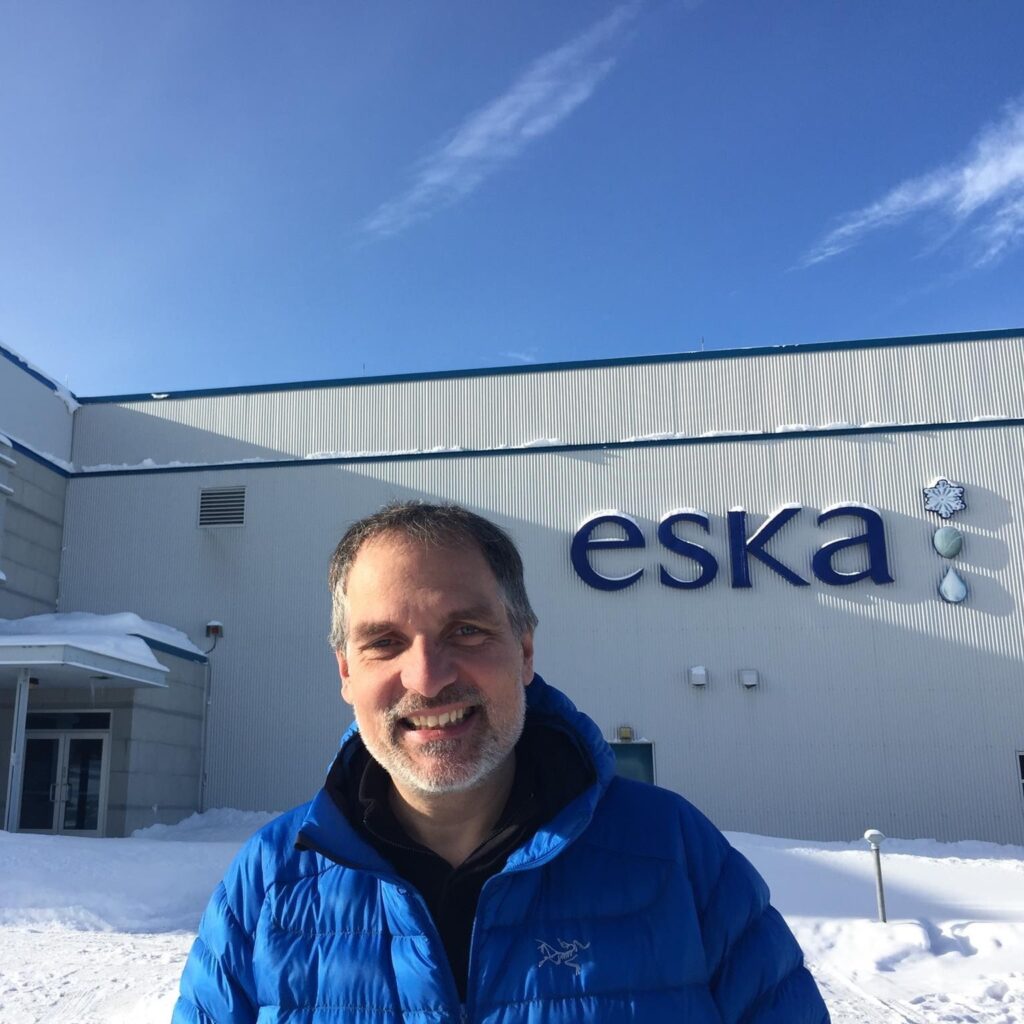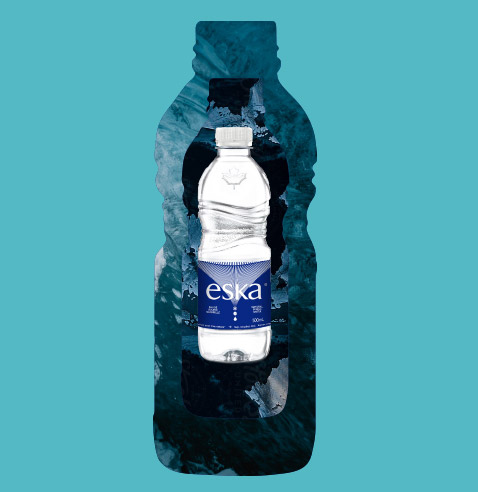The purity of the Eska bottling process
Eska natural spring water is bottled straight at the esker source, where it goes through a 15-year process of natural filtration. No more than five minutes after being pumped from underground, the water gets sealed in our signature recycled plastic bottle. Talk about fresh!

We sat down with our Chief Operating Officer and Vice President Operations Michel McArthur to talk about Eska’s natural filtration process, pure bottling process and deep commitment to protecting and preserving the precious esker source.

Where is the esker located?
The Saint-Mathieu-Lac-Berry esker is located in Saint-Mathieu-d’Harricana in the Abitibi-Témiscamingue region, about 600 kilometres north of Montreal, Quebec. The esker is an underground river that was formed when a glacier receded about 9,000 years ago… so it has a whole lot of history!
Can you tell us about Eska’s natural filtration system?
When the water comes out of the ground, it’s already naturally filtered and incredibly pure. To maintain its purity, we pump it through stainless steel pipes because stainless steel is so sanitary and easy to clean. The water then goes through a UV light that kills potential microorganisms.
Next, the water goes through another UV light before passing through a 3-micron filter to remove any large particles that might have accidentally made their way into the bottling process.
Our water is such high quality and so naturally pure, we don’t need to filter or ozonate it at all. We put precautionary measures in place to make sure our water isn’t modified or accidentally contaminated in any way. And we bottle our water less than five minutes after it’s been pumped from the source so that it’s virtually untouched when it’s bottled. Just as nature intended it.
How is this different from the way competitors treat or filter their water?
Most of our competitors ozonate their water. That means they expose the water to ozone gas, a highly effective disinfectant that cleans the water and the inside of the bottle as well.
The good thing about ozonation is that it prevents contamination inside the water and bottle. The downside is that if the water contains a certain level of bromide (which occurs naturally in water), there’s a chance the bromide will get oxidized and become bromate—a registered carcinogen in high doses.
Some of our other competitors use micro-filtration. Our filtration is 3 microns, but a lot of companies go as low as 0.2 microns or 0.4 microns to filter out any bad bacteria. Then they ozonate the water and pass it through a UV light.
Some companies use reverse osmosis municipal water, which has gone through a special filtration process that strips all the minerals out of the water.
Then there are spring waters that contain unstable elements like manganese and iron, which can oxidize and turn solid leaving small visible particles in the water—not the most appetizing! Many spring waters require special filtration systems to remove these unwanted elements from the water.
But at Eska, we don’t need to go through any special filtration processes because the quality of our water at the source is so good. We don’t need to treat it at all. Just the opposite, we actually have measures in place to make sure our water is untouched—just the way nature intended it.
How do you protect and preserve the esker and the surrounding region?
Nobody cares more about the esker than we do! We use monitoring equipment to measure the flow of the spring 365 days a year. And we have equipment that measures the water table to make sure it stays at healthy levels that are highly regulated by the government.
Michel McArthur

When the Ministry of Environment issued the permit for our well, we had to pump the water for two years straight to demonstrate the sustainability of the well and the source. We only take a very small fraction of the water that comes out of the ground.
We’re also committed to protecting the environment around the esker.Local municipalities put land use regulations in place to prevent anything that could damage the esker. In fact, the whole factory was built with a huge membrane underneath it to capture any potential contaminants that could seep into the esker.
Our facility is also built on concrete, which comes at a high cost but eliminates the risk of petroleum-based asphalt contaminating the aquifers, which makes it more than worth the investment.
Another thing we do is help fund local research into preserving the esker. We support a local university along with the Société de l’eau souterraine de l’Abitibi-Témiscamingue— a non-profit organization that carries research to protect the source.
From our natural filtration process to protecting the esker source, Eska’s whole philosophy is about following the true nature of water to keep it as pure and natural as possible.
Comments are closed.
- Published on , in
- Follow your true nature
share
Read also
See all